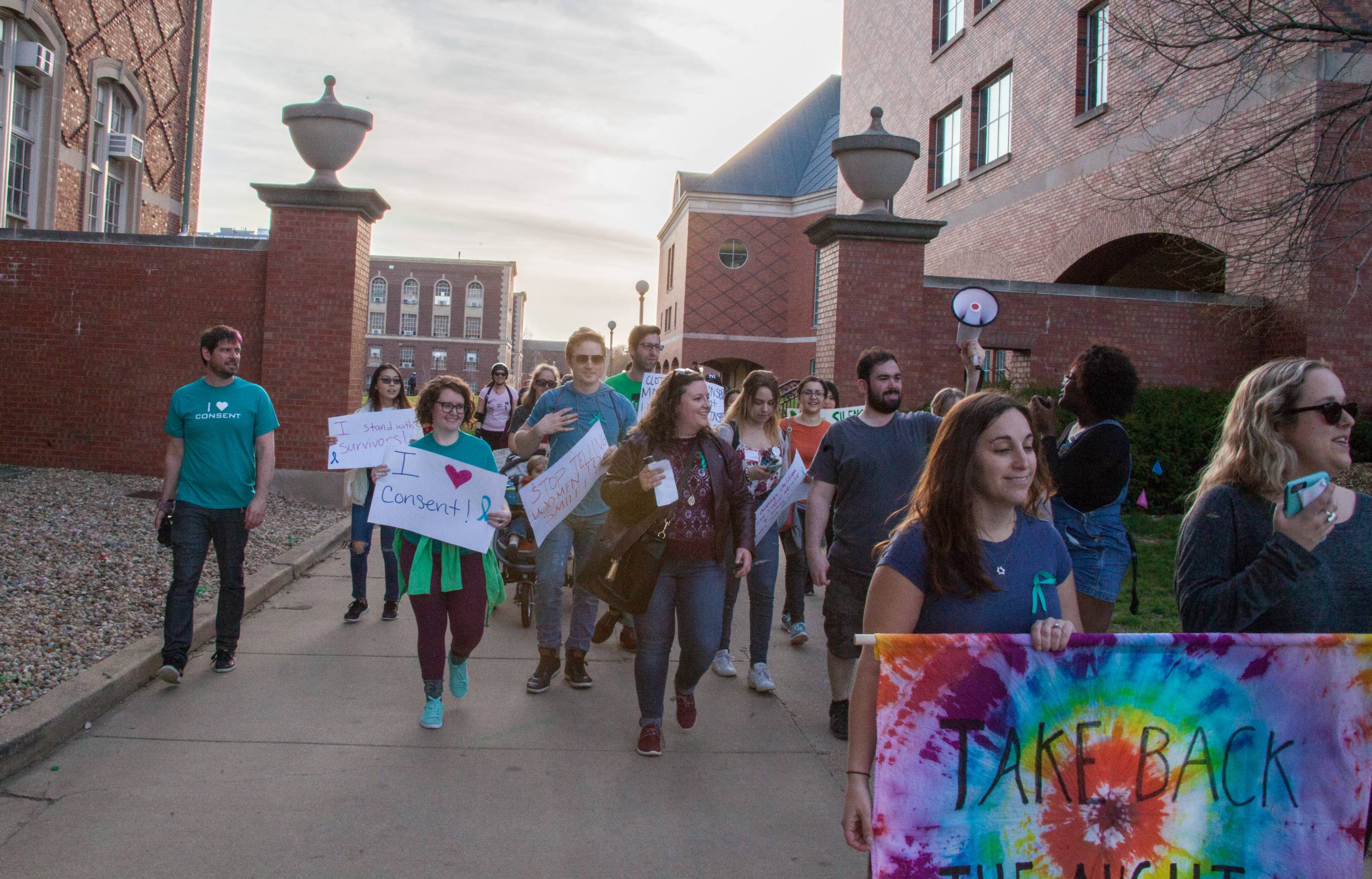I attended my first Take Back the night in 1998. It was powerful. Take Back the Night 2018 was no different. The crowd gathered at Lincoln Square Mall, proudly holding signs raising awareness about sexual violence. Women and men marched down Green Street towards campus chanting “Women unite, take back the night!” Bystanders honked in support. Students watched as the crowd loudly called on them to join in. The night ended with a Speak In for survivors to share their stories.
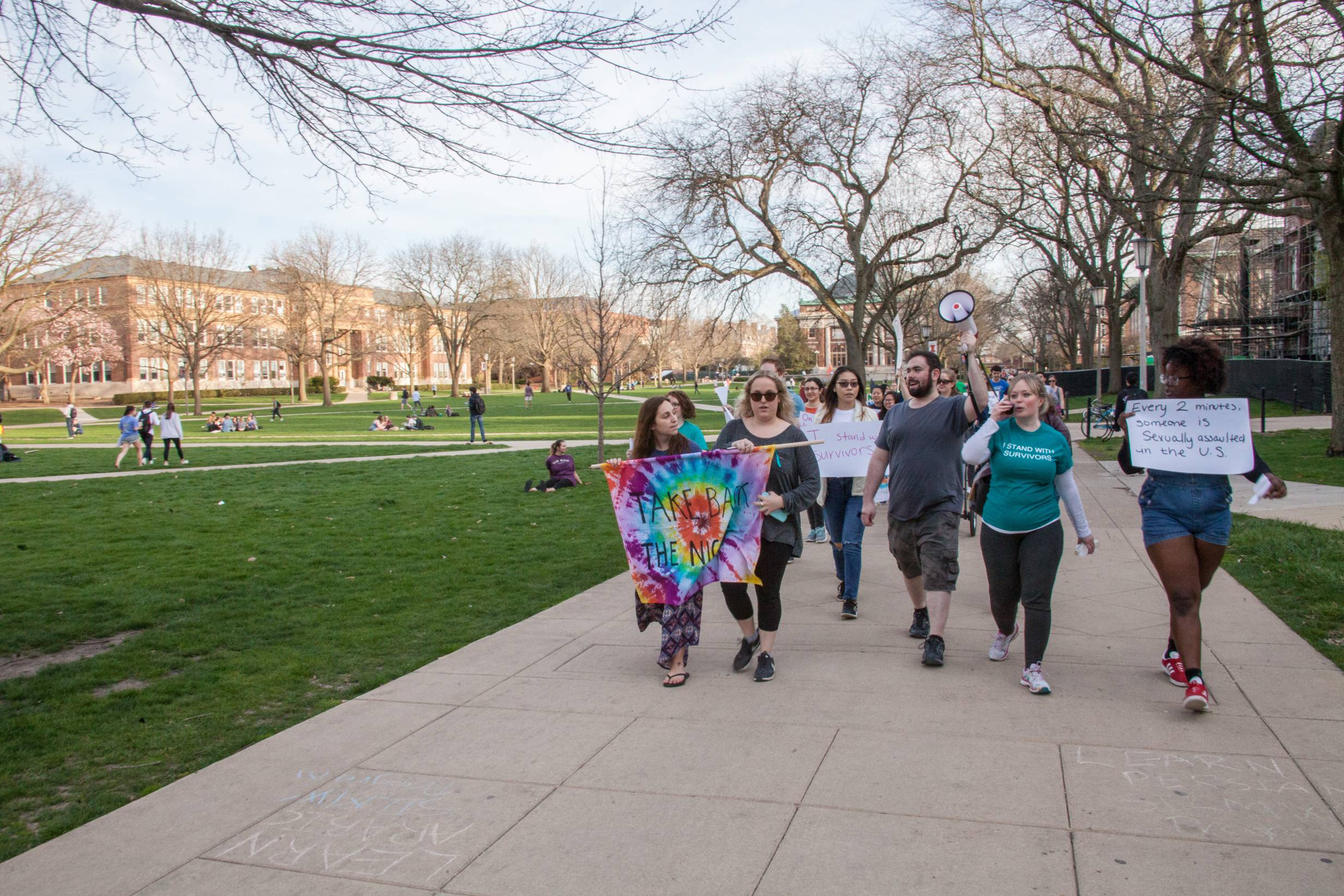
I spoke with Jaya Kolisetty, the associate director at Rape Advocacy Counseling and Educated Services (RACE) and one of the event’s organizers.
Smile Politely: Tell me about tonight and how you got involved with this organization?
Jaya Kolisetty: I’ve been involved in this organization for about 5 years. I started as a volunteer and have been a staff member for most of that time. This is one of the many ways we try to make sure survivors in our community know they supported and folks are going to be there to believe them. This is a great way of showing a larger range of support where they get to see there are people who care, who want to challenge the sexual violence that is so prevalent in our culture. This is a great visual for that, but we certainly do that work in a lot of different ways on a daily basis.
SP: How does Take Back the Night empower survivors of sexual violence?
Kolisetty: I certainly can’t speak for survivors as a whole, every single person’s healing process looks different. This is one way some people can feel supported. There is a community that supports survivors. In terms of empowerment, it’s a space for survivors to share what they are feeling, to speak out, to talk to people, not only during the march but also during the Speak In at the end which is closed. Sometimes survivors don’t have that space to share their story, to talk to people. Maybe they haven’t received the belief and support they deserve in their personal life so it’s a way to hold that space for folks.
SP: What further action can people take after this march?
Kolisetty: We offer our services 24 hours a day, every single day of the week. Some of what allows us to do that is support we received from our community. That can come in a lot of different ways, obviously donations, but we are also very fortunate. We have an incredible volunteer pool including our board that does a lot to support this community, so I just want to recognize them. One of the most important things is for people to educate themselves because we all know survivors whether we know it or not. If someone discloses to them, they know what to say and know how to support survivors. That’s huge. I would encourage people to educate themselves, do the hard work, and make sure they are really there for survivors who might be looking for support in their own lives.

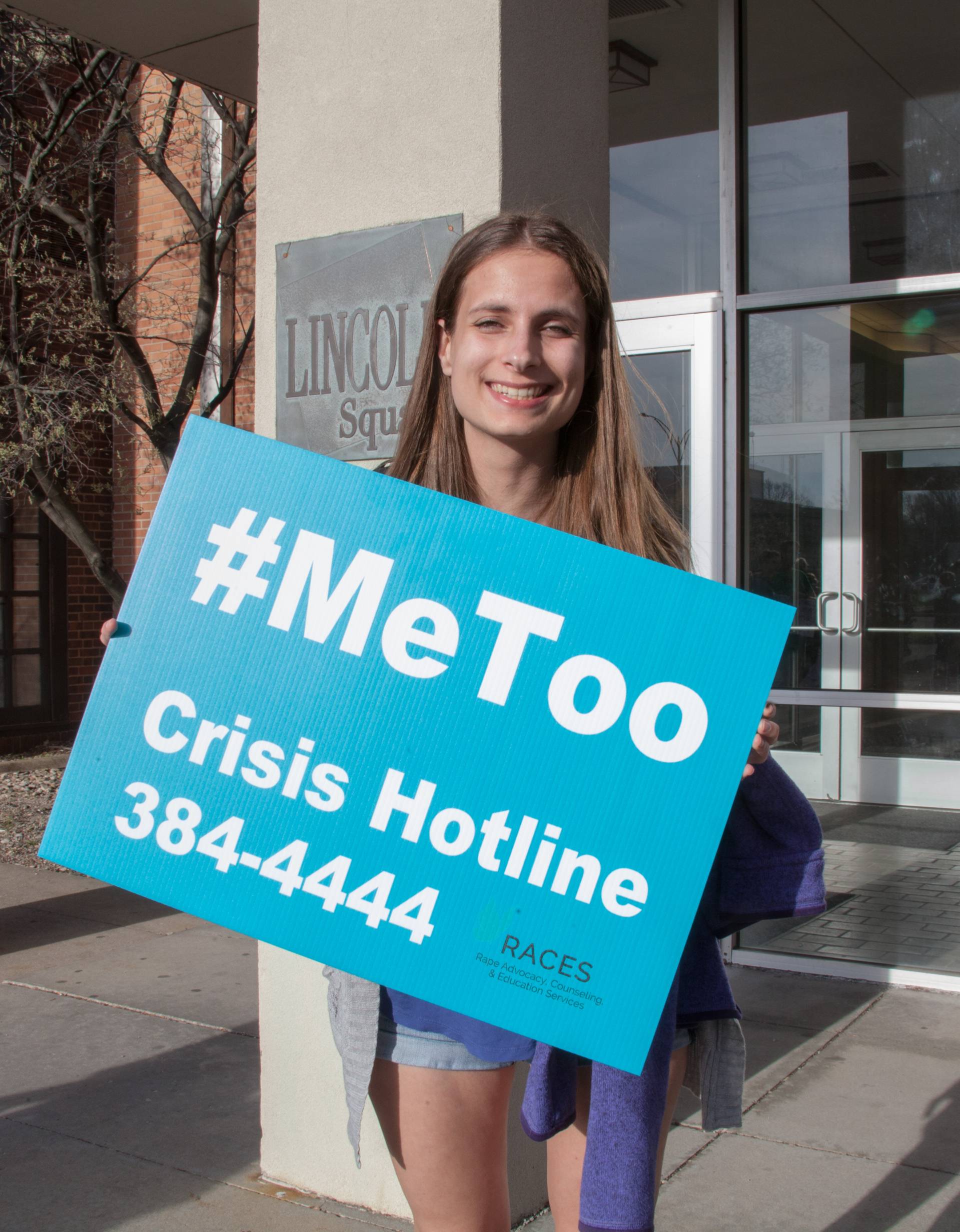
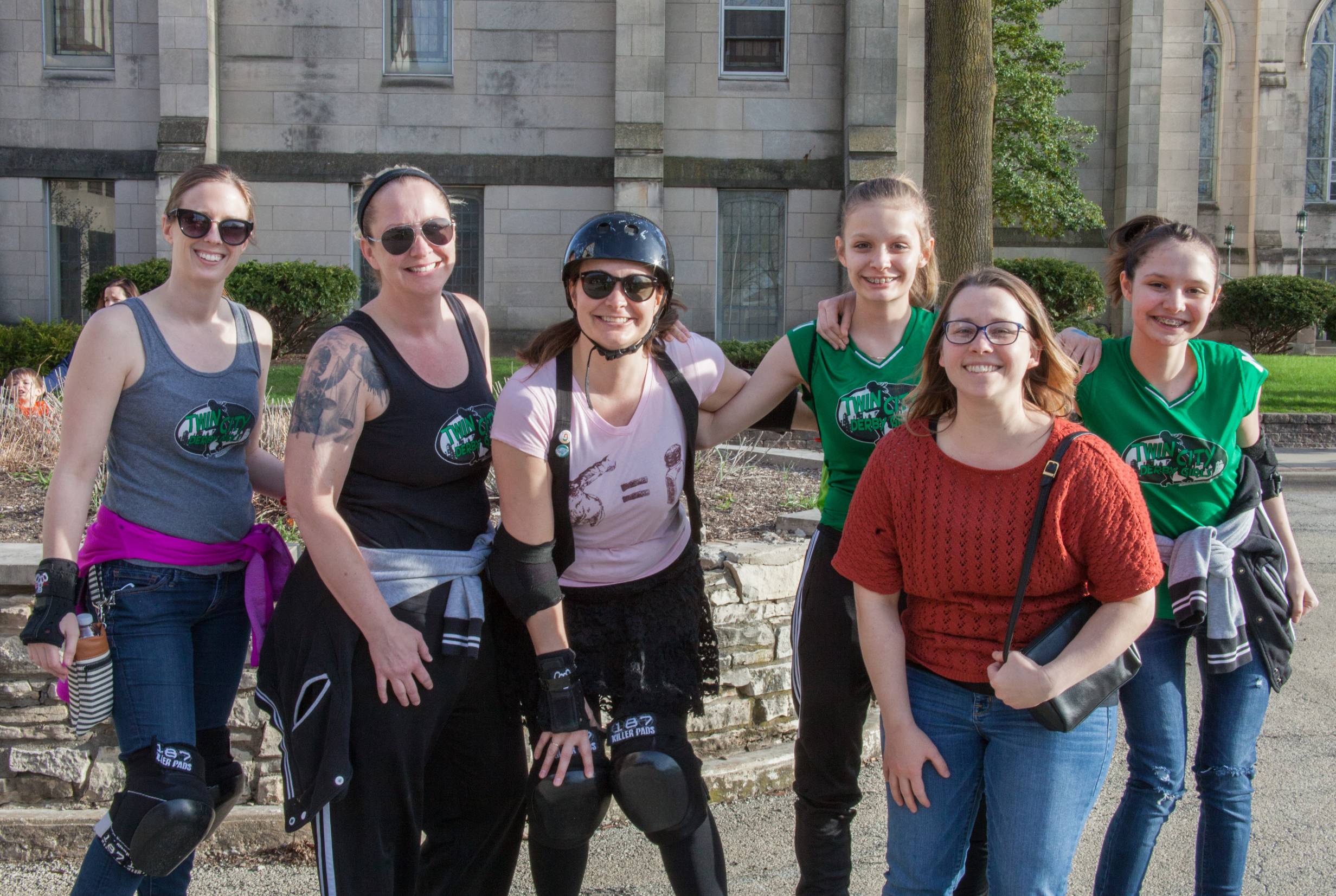
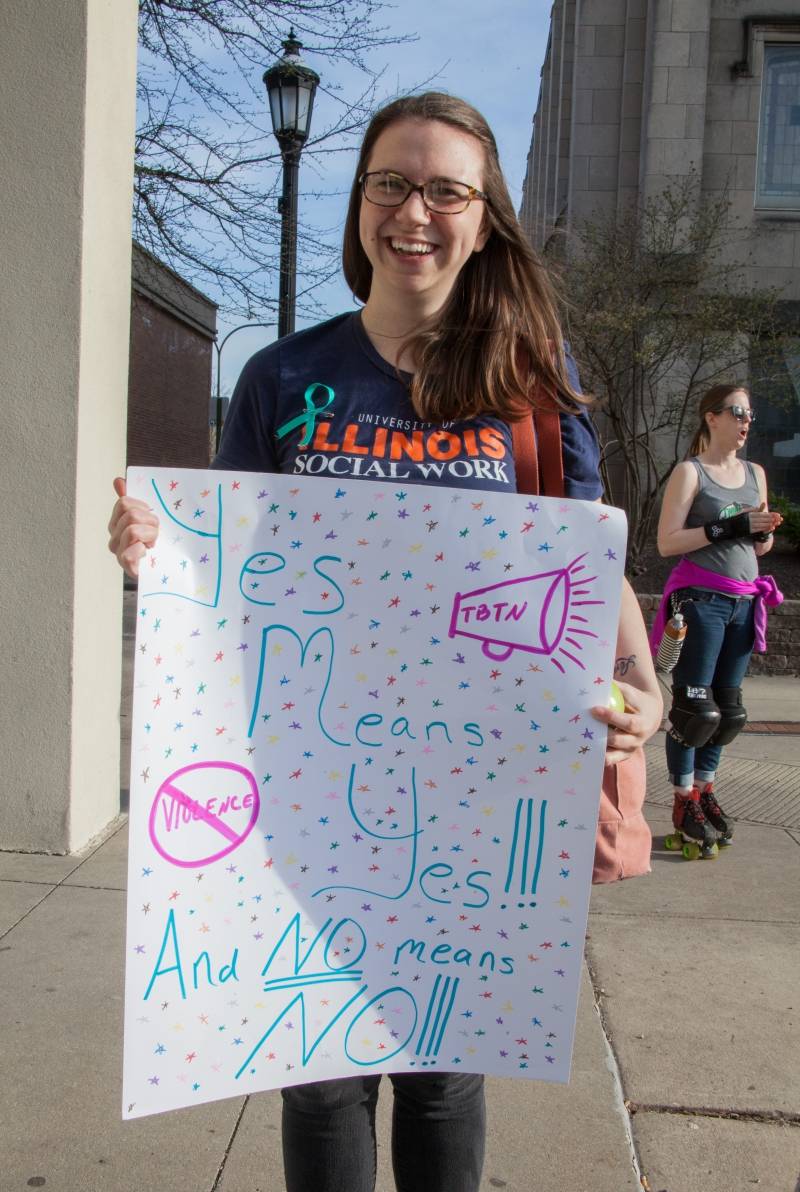
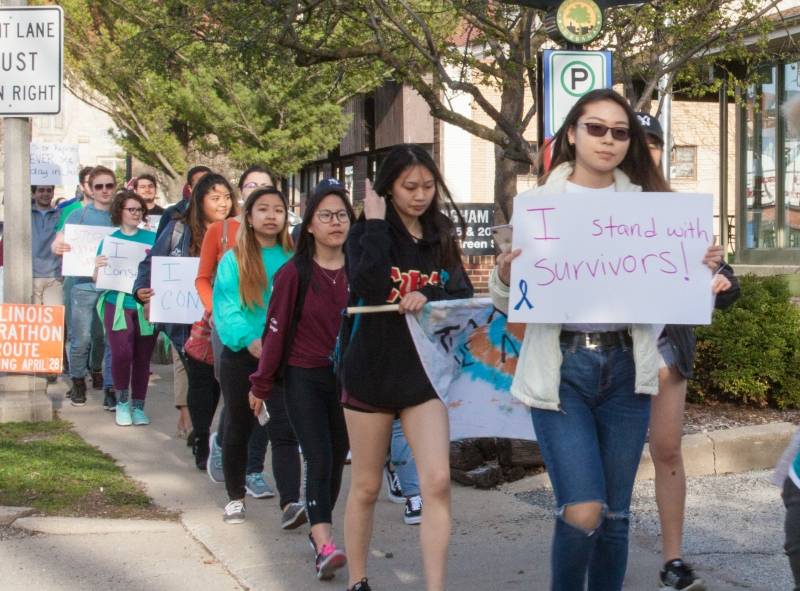
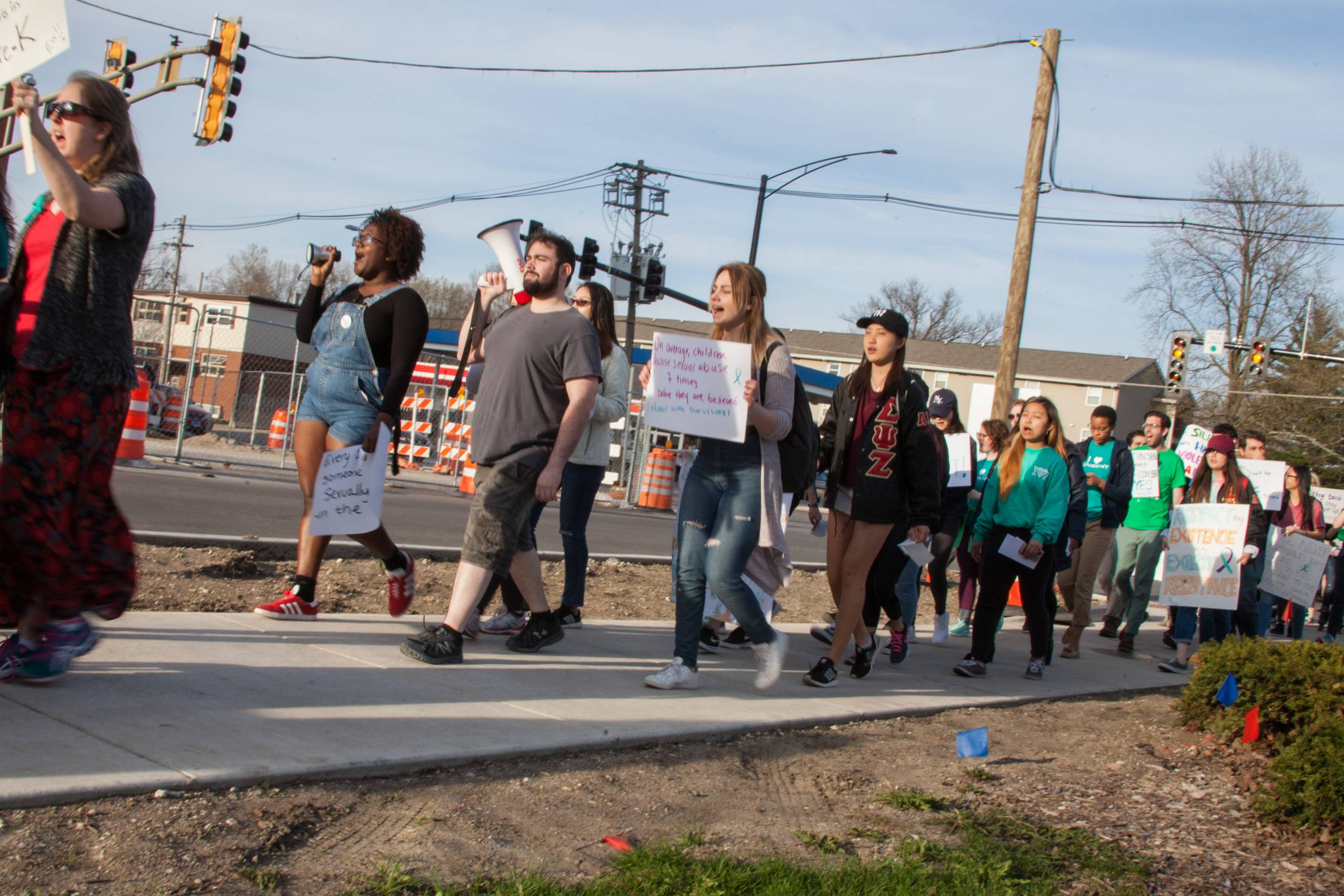
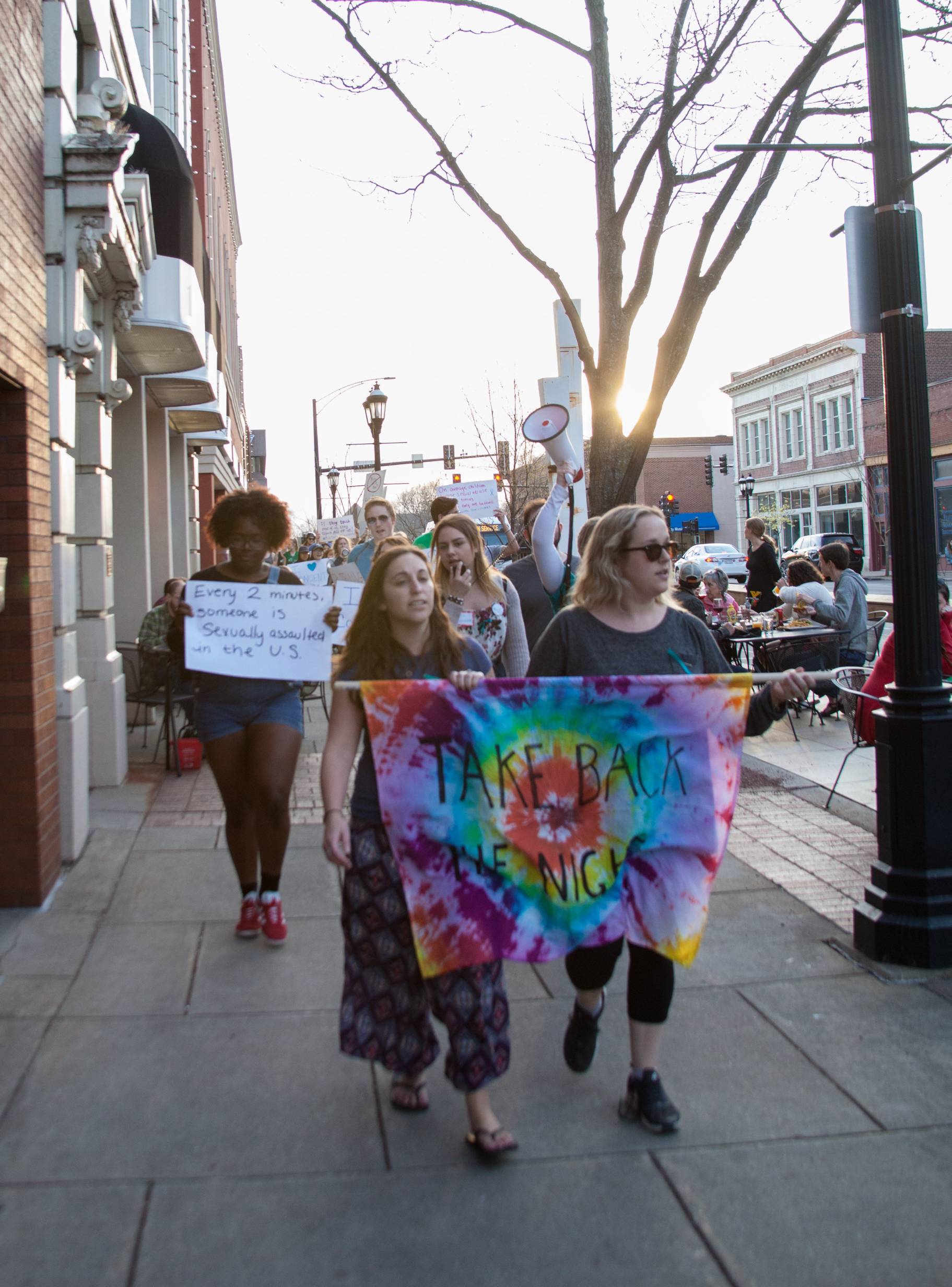
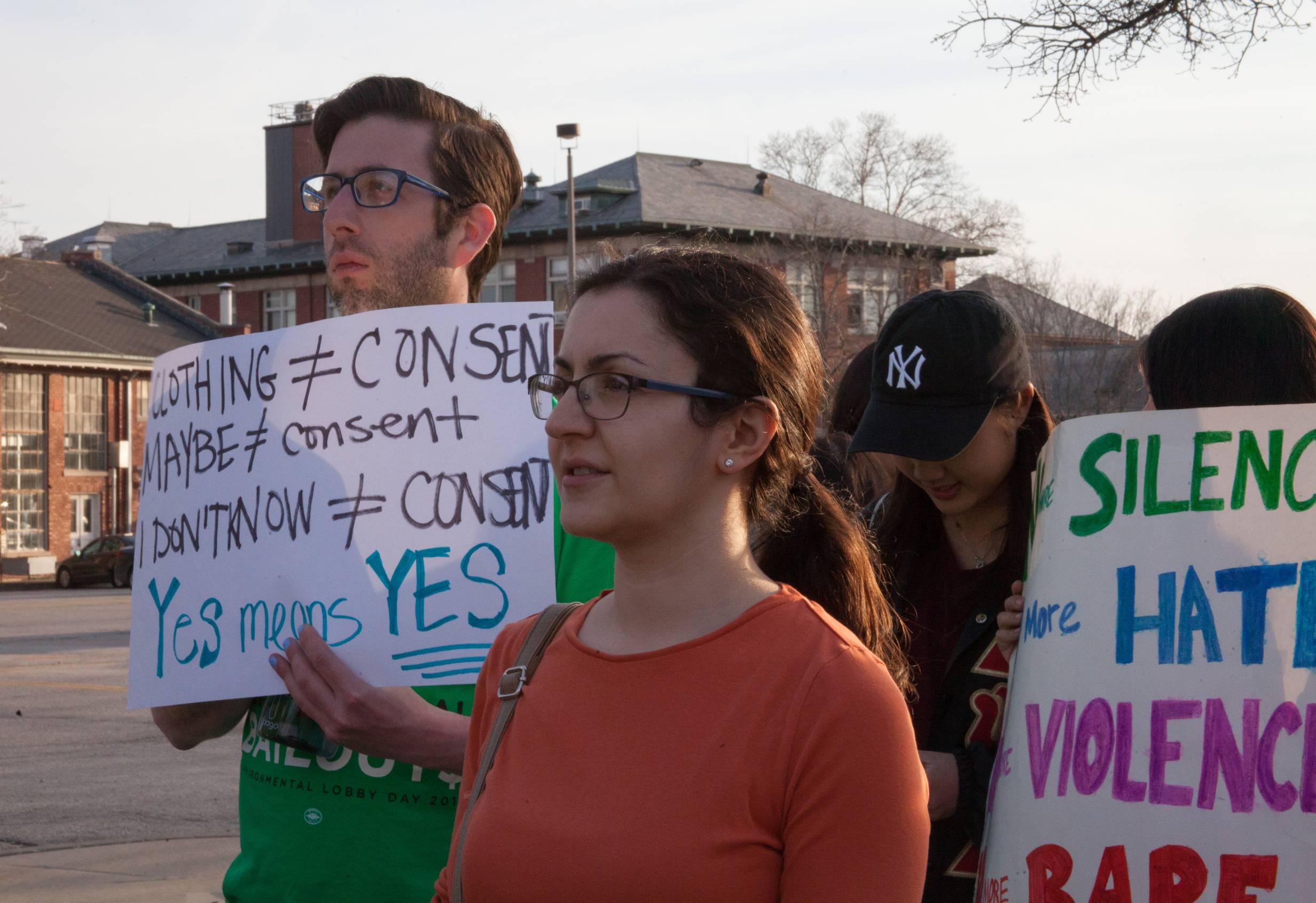
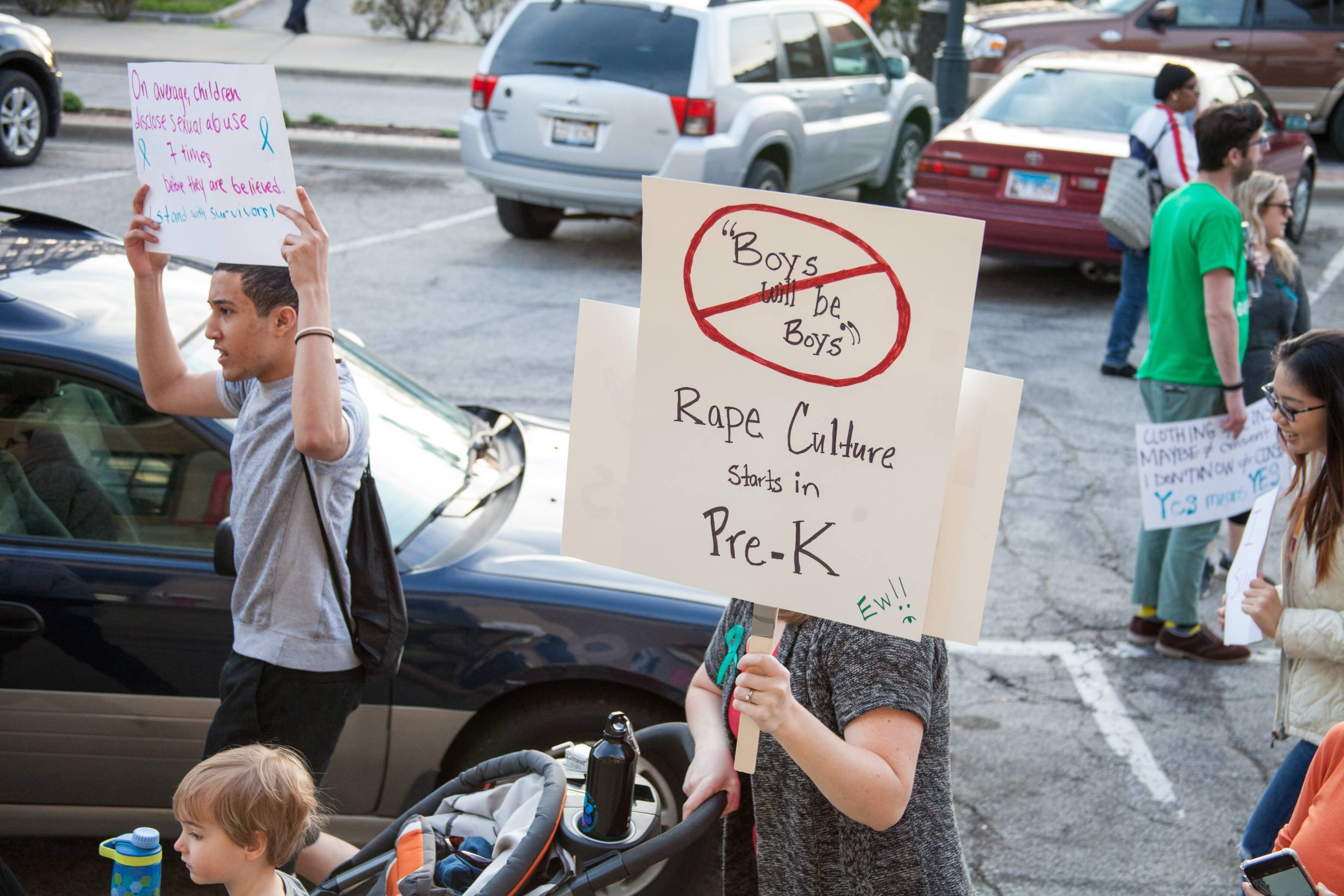
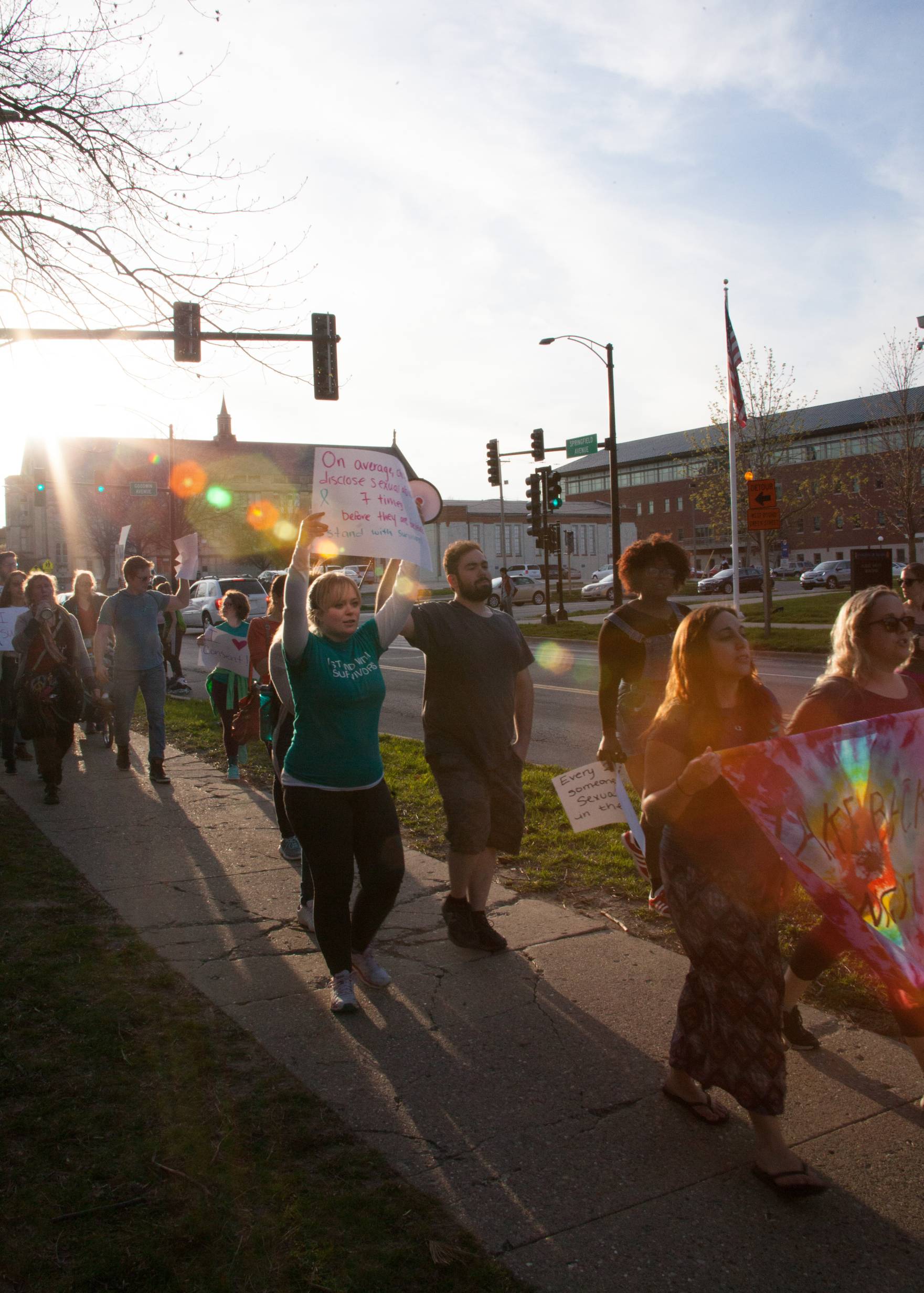
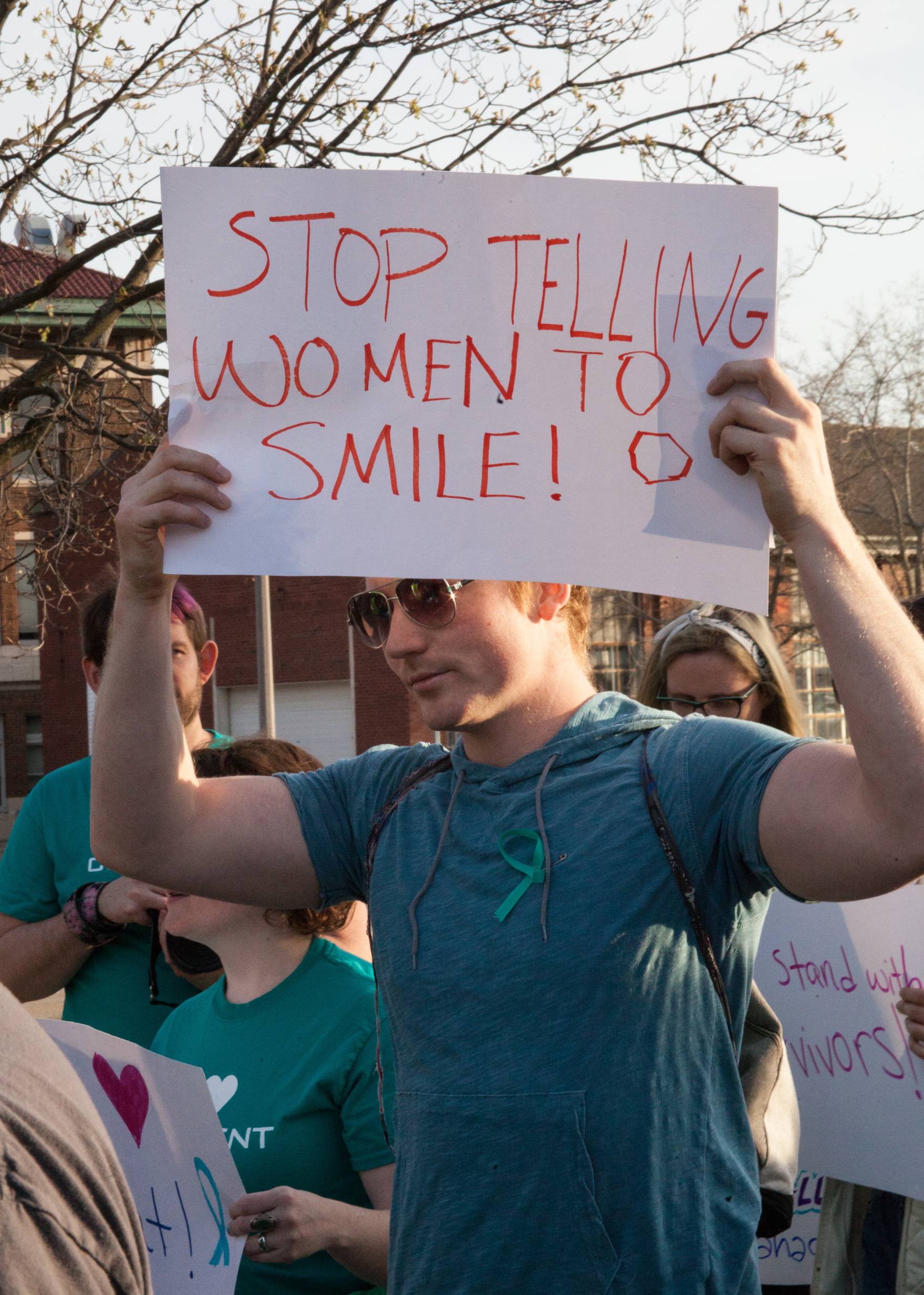
Photos by Angela Waarala








